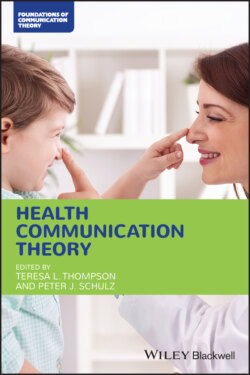Читать книгу Health Communication Theory - Группа авторов - Страница 33
3 When Theory and Method Intertwine
ОглавлениеJill Yamasaki
Given the nature of interpretive/critical approaches to health communication research, it is not always possible, practical, or desirable to consider theory as distinct from methodology and representation. Theories exist in this context as explanatory concepts that are related but not unified and generated rather than extended, challenged, or confirmed. To that end, contemporary interpretive/critical scholarship often intertwines theory with method and combines findings with discussion in carefully crafted expressions (i.e. written, oral, and/or visual) that emphasize local knowledge, in‐depth understandings, and intersubjectivity. Despite these differences from theory‐driven (often post‐positivist) work, however, rigor, validity, and ethical considerations throughout the research process remain paramount.
In this chapter, I offer a brief introduction to four common theoretical frameworks that incorporate these tenets and help guide interpretive/critical health communication research. First, I present shared philosophical foundations underlying interpretive scholarship, followed by explanations of grounded theory, narrative theorizing, autoethnography, and rhetoric of health and medicine. None of these theoretical approaches or methods originated in health communication; however, they have been employed extensively in health contexts and by health communication scholars, many of whom have expanded, shaped, and/or strengthened them through health communication research.
